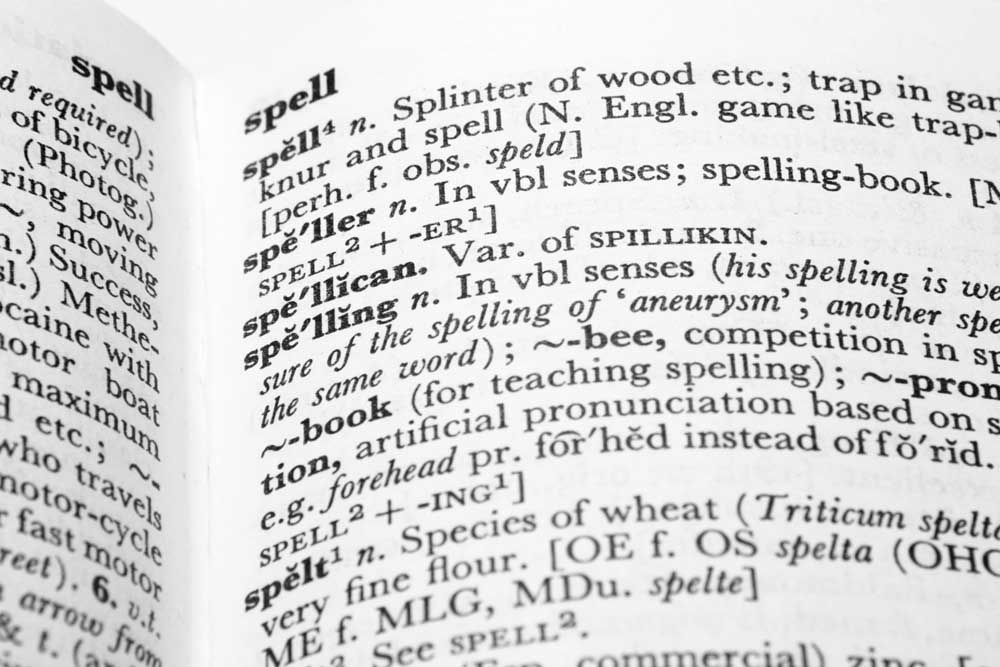Not for web
Published 9:00 pm Tuesday, November 28, 2023

- Spell
I never expected to win. I had lost more than two dozen spelling bees since I started competing, in the fourth grade, and last year, I didn’t even qualify for the national competition. If that wasn’t enough pressure, this was my final year of eligibility. This spelling bee was my last shot.
The annual Scripps National Spelling Bee is an incredible event. Each year, some 11 million students from across the country take part in the spelling bee circuit, all vying for the championship title. After competing in rigorous local bees, about 200 spellers make it to the national stage, and a handful of them qualify for the grand finals. Of course, only one can be crowned the National Spelling Bee champion. This year that student was me.
How did I finally break through? There are almost half a million words in English dictionaries. Add in thousands of roots and hundreds of language patterns, and it is impossible to memorize everything. Once I realized that, I changed the way I trained and started focusing on sharpening my intuition.
The skill of guessing is everything. Though I could — and did — study words for hours on end, I knew my greatest asset would be learning to guess correctly. In stressful situations, sometimes you just have to breathe, steady yourself and leave things to chance.
The secret to spelling is understanding the “how” and “why” of language. Most words have patterns based on the sounds they make. For example, words that derive from French often substitute “ch” for the “sh” sound, as in the word “chagrin.” The part of speech can clarify how to spell the end of a word. Adjectives prefer “ous,” such as in the word “egregious,” and nouns typically use “us” like in “abacus.” And studying alternate pronunciations can keep you from agonizing over multiple letters, like in “GIF” and “JIF.” The letter G can mimic a J sound, but never the reverse.
In fact, this is exactly what the spelling bee wants spellers to learn — the mechanics of words. It’s why we ask so many questions. Jacques Bailly, the longtime pronouncer for the Scripps bee, answers investigative questions about a given word. Each question plays a role in guessing a word correctly. Asking about the language of origin helps narrow which roots to ask about next. For example, in my winning word, “psammophile,” Bailly told me both parts are Greek. That eliminated about half of the roots, since most roots are either Greek or Latin.
The definition offered more clues to the right root in question. A psammophile is an organism that lives in sandy soils. Remembering the language of origin, I thought of Greek roots that mean sand. This type of linguistic deduction takes practice, and the best spellers can perform it instantly.
However, you could be the best speller who ever lived and still lose. Champion spellers are adept at more than just decoding language. They know how to manage their emotions onstage and think clearly under pressure. They also know how to lose with grace.
These are the skills that I put into practice when I had to guess the spelling of a word I didn’t know. The word “rommack” is special; it has an unknown etymology. It’s used only in England, and it means to “play boisterously.” At first, I thought of the word frolic, which is close in meaning, but I knew the panelists were trying to trick me. The expert linguists who design the spelling bee choose the competition words carefully. They want spellers to confuse a word with other simple words. I knew I was running out of time — so with 40 seconds left on the clock, I put my money on “R-O-M-M-A-C-K.”
Winning the spelling bee is worth more than having an impressive line on my résumé. Spelling has better prepared me for life. Competitive spelling teaches you to be unafraid to take risks. No matter how well we may think we know something, eventually, we all have to take a guess.





